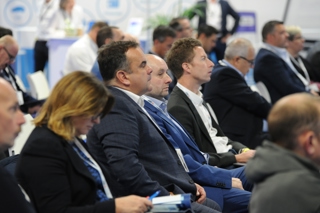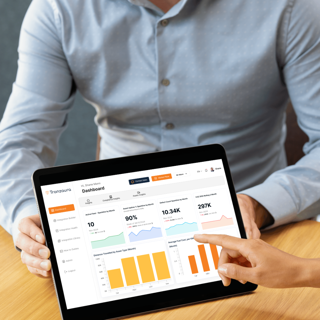MPs on the Transport Committee are urging the Government to reform motoring taxation by introducing a ‘pay-as-you-drive’ scheme using telematics technology.
The switch to electric vehicles (EVs), it says, means current road tax revenues of £35 billion a year from fuel duty and vehicle excise duty (VED) could disappear by 2050 unless ministers act now.
In the Transport Committee’ report on road pricing published today (Friday, February 4), it says that the Government should consider a road pricing mechanism that uses telematics technology to charge drivers according to distance driven, factoring in vehicle type and time of day.
MPs say they have not seen a viable alternative to a road pricing system based on telematics, suggesting it is the only route the Government can take if it wants to reform motoring taxes and plug the potential shortfall in revenues.
However, it says that any new system of road taxation must be revenue neutral and assess the impact on high-mileage drivers, such as road hauliers and those in rural communities, and on those least able to adapt to increased motoring costs.
“It’s time for an honest conversation on motoring taxes,” said Huw Merriman MP, chair of the Transport Committee.
“The Government’s plans to reach net zero by 2050 are ambitious. Zero emission vehicles are part of that plan. However, the resulting loss of two major sources of motor taxation will leave a £35bn black hole in finances unless the Government acts now - that’s 4% of the entire tax-take.
“Only £7bn of this goes back to the roads; schools and hospitals could be impacted if motorists don’t continue to pay.”
The Transport Committee, which launched its road pricing inquiry in 2020, considered the implications of accelerating the shift to zero emission vehicles, including bus and freight vehicles, and the case for using new technology to introduce some form of road pricing.
The ban on the sale of new petrol and diesel vehicles from 2030 will result in a corresponding decline in two significant sources of Treasury revenue.
As sales of electric vehicles increase, Treasury revenue from motoring taxation will decrease, because neither fuel duty nor vehicle excise duty are currently levied on electric vehicles.
MPs say that without reform, policies to deliver net zero emissions by 2050 will result in zero revenue for the Government from motoring taxation.
“We need to talk about road pricing,” continued Merriman. “Innovative technology could deliver a national road-pricing scheme which prices up a journey based on the amount of road, and type of vehicle, used.
“Just like our current motoring taxes but, by using price as a lever, we can offer better prices at less congested times and have technology compare these directly to public transport alternatives.
“By offering choice, we can deliver for the driver and for the environment.”
However, he stressed: “Road pricing should not cost motorists more, overall, or undermine progress on active travel.”
The report is also recommending that the Treasury and the Department for Transport (DfT) should join forces to set up an arm’s length body to examine solutions and recommend a new road charging mechanism by the end of 2022.
Merriman said: “Work should begin without delay. The situation is urgent. New taxes, which rely on new technology, take years to introduce.
“A national scheme would avoid a confusing and potentially unfair and contradictory patchwork of local schemes but would be impossible to deliver if this patchwork becomes too vast.
“The countdown to net zero has begun. Net zero emissions should not mean zero tax revenue.”
The AA’s president, Edmund King, AA president, says it has been obvious for some time that the transition to zero emission vehicles will mean the Treasury will have to recoup the £35bn currently taken in fuel duty and VED.
The merits of a national road pricing scheme to plug the shortfall from road taxes, including fuel duty, were expected to be investigated as part of the Government’s Net Zero Strategy, which was published in October, but were omitted from the final report.
The Treasury, following the March 2020 Budget, launched a consultation which covered the future of VED, with direct reference to EVs, yet it has still not published its findings.
Motorists 'support' road pricing alternative
King believes that, while many drivers accept the principle of ‘pay-as-you-go’, according to research conducted by the AA, they do not trust politicians to deliver a fair system.
“Hence, we agree with the committee that any new taxation proposals should be put forward by a body at arm’s length to Government and any new scheme should be revenue neutral and we believe the charges should be set independently,” he said.
However, while the committee wants any new system to totally replace fuel duty and VED, the AA argues that a transition period would be required to still encourage the take-up of EVs.
Five years ago, in a short-listed joint-submission to the Wolfson Economics Prize with economist Deirdre King, the AA suggested a ‘Road Miles’ system that would be gradually introduced, with every driver receiving an allowance of 3,000 free miles - one third more for those in rural areas or with disabilities – and thereafter a small charge per mile would be levied.
“Whatever system put forward must be equitable or it will back-fire,” said King.

Research from the RAC also suggests that drivers broadly support the principle of ‘the more you drive, the more tax you should pay’, with nearly half (45%) saying a ‘pay per mile’ system would be fairer than the current regime.
RAC head of roads policy Nicholas Lyes said: “Whatever any new taxation system looks like, the most important thing is that it’s simple and fair to drivers of both conventional and electric vehicles.
“Ministers should also consider ringfencing a sizeable proportion of revenue for reinvestment into our road and transport network.
“The Treasury needs get moving on this sooner rather than later.”
It is a sense of urgency shared by Ben Foulser, head of future mobility at KPMG UK. He explained: “With rapid adoption of zero emission vehicles underway and a 2030 ban on the sales of conventional petrol and diesel vehicles looming, it’s vital that progress is accelerated on developing our future road pricing system.”
As acknowledged in the transport committee report, there are a number of local clean air and congestion charging schemes in existence in the UK already. “Any national system developed needs to incorporate those, rather than add to them,” continued Foulser.
“I hope that this report prompts the start of an open conversation with the public about future road charging and the role of such a demand management tool in reducing congestion.”
The Transport Committee report comes in the wake of separate research from Element Energy, which was commissioned by the Mayor of London.
The report sets out that to achieve required reduction in car use in the capital will need a new kind of road user charging system implemented by the end of the decade at the latest.
Such a system, says the Mayor, Sadiq Khan, could abolish all existing road user charges – such as the congestion charge and ULEZ - and replace them with a scheme where drivers pay per mile, with different rates depending on how polluting vehicles are, the level of congestion in the area and access to public transport.
The future of motoring taxation
Commenting on the Transport Committee report, Toby Poston, director of corporate affairs at trade body the British Vehicle Rental and Leasing Association (BVRLA), says that road pricing involves a "total rethink" about the way we tax motorists and incentivise transport behaviour.
"It is a controversial topic, and one that successive Governments have chosen to avoid," added Poston, who gave evidence to the Committee in October.
“Policymakers have to get off the fence and start providing a roadmap for the future of motoring taxation.
"BVRLA members have set out their road pricing principles, and we are delighted that the Transport Select Committee agrees with so many of them, particularly the need to make any system revenue neutral and think about the needs of essential road users.
“Like the Committee, we think the work should start now and the fleet sector is ready to help explore the technologies and policies that will deliver an efficient and effective road pricing system.
"A key role in the implementation of the required technologies sits with multiple government agencies. We need to see them working in close collaboration, receiving additional support in order to meet the challenges of this monumental shift.”




















Login to comment
Comments
No comments have been made yet.